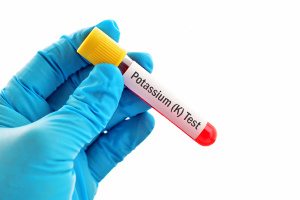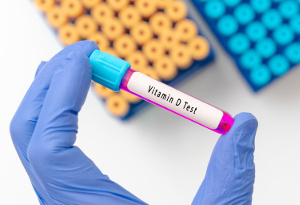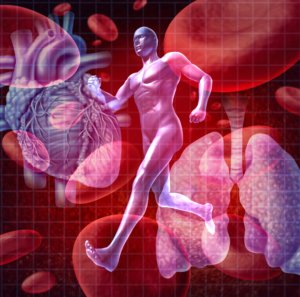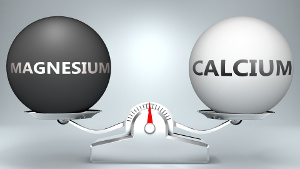afterLoad (456.39KB) (3.39ms)
afterInitialise (1.27MB) (39.97ms)
afterRoute (870.39KB) (22.33ms)
beforeRenderComponent com_tags (21.16KB) (263μs)
afterRenderComponent com_tags (1.51MB) (118ms)
afterDispatch (27.03KB) (3.75ms)
beforeRenderRawModule mod_articles_category (READ MORE...) (388.22KB) (17.27ms)
Before Access::preloadComponents (all components) (56.7KB) (1.53ms)
After Access::preloadComponents (all components) (103.05KB) (2.31ms)
Before Access::getAssetRules (id:8 name:com_content) (840B) (18μs)
After Access::getAssetRules (id:8 name:com_content) (7.05KB) (42μs)
afterRenderRawModule mod_articles_category (READ MORE...) (5.25KB) (170ms)
beforeRenderRawModule mod_tags_popular (Search) (4.81KB) (23μs)
afterRenderRawModule mod_tags_popular (Search) (3KB) (103ms)
beforeRenderRawModule mod_custom (Remember to download Heart Healthy Seniors) (816B) (515μs)
afterRenderRawModule mod_custom (Remember to download Heart Healthy Seniors) (4.86KB) (771μs)
beforeRenderRawModule mod_custom (Get additionel and more detailed knowledge ) (752B) (23μs)
afterRenderRawModule mod_custom (Get additionel and more detailed knowledge ) (1.67KB) (41μs)
beforeRenderRawModule mod_custom (BOOST YOUR IMMUNE DEFENSE) (608B) (11μs)
afterRenderRawModule mod_custom (BOOST YOUR IMMUNE DEFENSE) (928B) (22μs)
beforeRenderRawModule mod_custom (Are you taking supplements) (736B) (13μs)
afterRenderRawModule mod_custom (Are you taking supplements) (1.03KB) (23μs)
beforeRenderRawModule mod_custom (Antiaging) (720B) (8μs)
afterRenderRawModule mod_custom (Antiaging) (1.02KB) (17μs)
beforeRenderRawModule mod_custom (Exercise) (720B) (8μs)
afterRenderRawModule mod_custom (Exercise) (1.02KB) (20μs)
beforeRenderRawModule mod_custom (Check this before you buy a Q10 product) (752B) (10μs)
afterRenderRawModule mod_custom (Check this before you buy a Q10 product) (944B) (18μs)
beforeRenderRawModule mod_custom (Chronic fatigue tied Alan to his bed but Q10 capsules saved him:) (245.53KB) (4.77ms)
afterRenderRawModule mod_custom (Chronic fatigue tied Alan to his bed but Q10 capsules saved him:) (960B) (44μs)
beforeRenderModule mod_custom (Chronic fatigue tied Alan to his bed but Q10 capsules saved him:) (768B) (4μs)
afterRenderModule mod_custom (Chronic fatigue tied Alan to his bed but Q10 capsules saved him:) (1.3KB) (55μs)
beforeRenderRawModule mod_custom (Cholesterol-lowering without side effects:) (368B) (11μs)
afterRenderRawModule mod_custom (Cholesterol-lowering without side effects:) (2.19KB) (33μs)
beforeRenderModule mod_custom (Cholesterol-lowering without side effects:) (752B) (2μs)
afterRenderModule mod_custom (Cholesterol-lowering without side effects:) (1.28KB) (29μs)
beforeRenderModule mod_articles_category (READ MORE...) (21.32KB) (1.41ms)
afterRenderModule mod_articles_category (READ MORE...) (1.25KB) (56μs)
beforeRenderModule mod_tags_popular (Search) (5.17KB) (13μs)
afterRenderModule mod_tags_popular (Search) (1.27KB) (23μs)
beforeRenderModule mod_custom (Remember to download Heart Healthy Seniors) (1.17KB) (10μs)
afterRenderModule mod_custom (Remember to download Heart Healthy Seniors) (1.3KB) (21μs)
beforeRenderModule mod_custom (Get additionel and more detailed knowledge ) (368B) (8μs)
afterRenderModule mod_custom (Get additionel and more detailed knowledge ) (1.3KB) (19μs)
beforeRenderModule mod_custom (BOOST YOUR IMMUNE DEFENSE) (224B) (9μs)
afterRenderModule mod_custom (BOOST YOUR IMMUNE DEFENSE) (1.28KB) (17μs)
beforeRenderModule mod_custom (Are you taking supplements) (352B) (8μs)
afterRenderModule mod_custom (Are you taking supplements) (1.28KB) (36μs)
beforeRenderModule mod_custom (Antiaging) (336B) (19μs)
afterRenderModule mod_custom (Antiaging) (1.27KB) (30μs)
beforeRenderModule mod_custom (Exercise) (336B) (9μs)
afterRenderModule mod_custom (Exercise) (1.25KB) (19μs)
beforeRenderModule mod_custom (Check this before you buy a Q10 product) (352B) (8μs)
afterRenderModule mod_custom (Check this before you buy a Q10 product) (1.28KB) (18μs)
beforeRenderRawModule mod_menu (Main menu-US) (20.94KB) (1.68ms)
afterRenderRawModule mod_menu (Main menu-US) (152.66KB) (2.63ms)
beforeRenderModule mod_menu (Main menu-US) (720B) (5μs)
afterRenderModule mod_menu (Main menu-US) (4.36KB) (53μs)
beforeRenderRawModule mod_languages (Sprogskift) (3.44KB) (20μs)
afterRenderRawModule mod_languages (Sprogskift) (26.84KB) (3.6ms)
beforeRenderModule mod_languages (Sprogskift) (720B) (5μs)
afterRenderModule mod_languages (Sprogskift) (5.31KB) (24μs)
beforeRenderRawModule mod_finder () (6.34KB) (11μs)
afterRenderRawModule mod_finder () (214.16KB) (5.24ms)
beforeRenderModule mod_finder () (704B) (8μs)
afterRenderModule mod_finder () (5.79KB) (39μs)
beforeRenderRawModule mod_custom () (6.62KB) (144μs)
afterRenderRawModule mod_custom () (22.7KB) (2.69ms)
beforeRenderModule mod_custom () (704B) (6μs)
afterRenderModule mod_custom () (1.23KB) (46μs)
beforeRenderRawModule mod_menu (Main menu-US) (5.07KB) (163μs)
afterRenderRawModule mod_menu (Main menu-US) (5.8KB) (777μs)
beforeRenderModule mod_menu (Main menu-US) (720B) (4μs)
afterRenderModule mod_menu (Main menu-US) (1.25KB) (42μs)
beforeRenderRawModule mod_languages (Sprogskift Mobil) (912B) (24μs)
afterRenderRawModule mod_languages (Sprogskift Mobil) (3.89KB) (2.77ms)
beforeRenderModule mod_languages (Sprogskift Mobil) (720B) (5μs)
afterRenderModule mod_languages (Sprogskift Mobil) (1.27KB) (40μs)
beforeRenderRawModule mod_finder () (2.3KB) (11μs)
afterRenderRawModule mod_finder () (6.25KB) (5.79ms)
beforeRenderModule mod_finder () (704B) (5μs)
afterRenderModule mod_finder () (1.23KB) (46μs)
beforeRenderRawModule mod_custom () (8.66KB) (195μs)
afterRenderRawModule mod_custom () (904B) (161μs)
beforeRenderModule mod_custom () (704B) (3μs)
afterRenderModule mod_custom () (2.43KB) (24μs)
beforeRenderRawModule mod_custom () (688B) (90μs)
afterRenderRawModule mod_custom () (896B) (114μs)
beforeRenderModule mod_custom () (704B) (3μs)
afterRenderModule mod_custom () (2.71KB) (20μs)
afterRender (273.74KB) (13.66ms)
| 1 x afterRenderRawModule mod_articles_category (READ MORE...) (5.25KB) (31.71%) | 170.28ms |
| 1 x afterRenderComponent com_tags (1.51MB) (21.89%) | 117.56ms |
| 1 x afterRenderRawModule mod_tags_popular (Search) (3KB) (19.25%) | 103.38ms |
| 1 x afterInitialise (1.27MB) (7.45%) | 39.97ms |
| 1 x afterRoute (870.39KB) (4.16%) | 22.33ms |
| 1 x beforeRenderRawModule mod_articles_category (READ MORE...) (388.22KB) (3.22%) | 17.27ms |
| 1 x afterRender (273.74KB) (2.54%) | 13.66ms |
| 1 x afterRenderRawModule mod_finder () (6.25KB) (1.08%) | 5.79ms |
| 1 x afterRenderRawModule mod_finder () (214.16KB) (0.98%) | 5.24ms |
| 1 x beforeRenderRawModule mod_custom (Chronic fatigue tied Alan to his bed but Q10 capsules saved him:) (245.53KB) (0.89%) | 4.77ms |
| 1 x afterDispatch (27.03KB) (0.7%) | 3.75ms |
| 1 x afterRenderRawModule mod_languages (Sprogskift) (26.84KB) (0.67%) | 3.60ms |
| 1 x afterLoad (456.39KB) (0.63%) | 3.39ms |
| 1 x afterRenderRawModule mod_languages (Sprogskift Mobil) (3.89KB) (0.52%) | 2.77ms |
| 1 x afterRenderRawModule mod_custom () (22.7KB) (0.5%) | 2.69ms |
| 1 x afterRenderRawModule mod_menu (Main menu-US) (152.66KB) (0.49%) | 2.63ms |
| 1 x After Access::preloadComponents (all components) (103.05KB) (0.43%) | 2.31ms |
| 1 x beforeRenderRawModule mod_menu (Main menu-US) (20.94KB) (0.31%) | 1.68ms |
| 1 x Before Access::preloadComponents (all components) (56.7KB) (0.29%) | 1.53ms |
| 1 x beforeRenderModule mod_articles_category (READ MORE...) (21.32KB) (0.26%) | 1.41ms |
| 1 x afterRenderRawModule mod_menu (Main menu-US) (5.8KB) (0.14%) | 777μs |
| 1 x afterRenderRawModule mod_custom (Remember to download Heart Healthy Seniors) (4.86KB) (0.14%) | 771μs |
| 1 x beforeRenderRawModule mod_custom (Remember to download Heart Healthy Seniors) (816B) (0.1%) | 515μs |
| 1 x beforeRenderComponent com_tags (21.16KB) (0.05%) | 263μs |
| 1 x beforeRenderRawModule mod_custom () (8.66KB) (0.04%) | 195μs |
| 1 x beforeRenderRawModule mod_menu (Main menu-US) (5.07KB) (0.03%) | 163μs |
| 1 x afterRenderRawModule mod_custom () (904B) (0.03%) | 161μs |
| 1 x beforeRenderRawModule mod_custom () (6.62KB) (0.03%) | 144μs |
| 1 x afterRenderRawModule mod_custom () (896B) (0.02%) | 114μs |
| 1 x beforeRenderRawModule mod_custom () (688B) (0.02%) | 90μs |
| 1 x afterRenderModule mod_articles_category (READ MORE...) (1.25KB) (0.01%) | 56μs |
| 1 x afterRenderModule mod_custom (Chronic fatigue tied Alan to his bed but Q10 capsules saved him:) (1.3KB) (0.01%) | 55μs |
| 1 x afterRenderModule mod_menu (Main menu-US) (4.36KB) (0.01%) | 53μs |
| 1 x afterRenderModule mod_custom () (1.23KB) (0.01%) | 46μs |
| 1 x afterRenderModule mod_finder () (1.23KB) (0.01%) | 46μs |
| 1 x afterRenderRawModule mod_custom (Chronic fatigue tied Alan to his bed but Q10 capsules saved him:) (960B) (0.01%) | 44μs |
| 1 x afterRenderModule mod_menu (Main menu-US) (1.25KB) (0.01%) | 42μs |
| 1 x After Access::getAssetRules (id:8 name:com_content) (7.05KB) (0.01%) | 42μs |
| 1 x afterRenderRawModule mod_custom (Get additionel and more detailed knowledge ) (1.67KB) (0.01%) | 41μs |
| 1 x afterRenderModule mod_languages (Sprogskift Mobil) (1.27KB) (0.01%) | 40μs |
| 1 x afterRenderModule mod_finder () (5.79KB) (0.01%) | 39μs |
| 1 x afterRenderModule mod_custom (Are you taking supplements) (1.28KB) (0.01%) | 36μs |
| 1 x afterRenderRawModule mod_custom (Cholesterol-lowering without side effects:) (2.19KB) (0.01%) | 33μs |
| 1 x afterRenderModule mod_custom (Antiaging) (1.27KB) (0.01%) | 30μs |
| 1 x afterRenderModule mod_custom (Cholesterol-lowering without side effects:) (1.28KB) (0.01%) | 29μs |
| 1 x afterRenderModule mod_languages (Sprogskift) (5.31KB) (0%) | 24μs |
| 1 x afterRenderModule mod_custom () (2.43KB) (0%) | 24μs |
| 1 x beforeRenderRawModule mod_languages (Sprogskift Mobil) (912B) (0%) | 24μs |
| 1 x beforeRenderRawModule mod_tags_popular (Search) (4.81KB) (0%) | 23μs |
| 1 x beforeRenderRawModule mod_custom (Get additionel and more detailed knowledge ) (752B) (0%) | 23μs |
| 1 x afterRenderRawModule mod_custom (Are you taking supplements) (1.03KB) (0%) | 23μs |
| 1 x afterRenderModule mod_tags_popular (Search) (1.27KB) (0%) | 23μs |
| 1 x afterRenderRawModule mod_custom (BOOST YOUR IMMUNE DEFENSE) (928B) (0%) | 22μs |
| 1 x afterRenderModule mod_custom (Remember to download Heart Healthy Seniors) (1.3KB) (0%) | 21μs |
| 1 x afterRenderRawModule mod_custom (Exercise) (1.02KB) (0%) | 20μs |
| 1 x beforeRenderRawModule mod_languages (Sprogskift) (3.44KB) (0%) | 20μs |
| 1 x afterRenderModule mod_custom () (2.71KB) (0%) | 20μs |
| 1 x beforeRenderModule mod_custom (Antiaging) (336B) (0%) | 19μs |
| 1 x afterRenderModule mod_custom (Exercise) (1.25KB) (0%) | 19μs |
| 1 x afterRenderModule mod_custom (Get additionel and more detailed knowledge ) (1.3KB) (0%) | 19μs |
| 1 x Before Access::getAssetRules (id:8 name:com_content) (840B) (0%) | 18μs |
| 1 x afterRenderRawModule mod_custom (Check this before you buy a Q10 product) (944B) (0%) | 18μs |
| 1 x afterRenderModule mod_custom (Check this before you buy a Q10 product) (1.28KB) (0%) | 18μs |
| 1 x afterRenderModule mod_custom (BOOST YOUR IMMUNE DEFENSE) (1.28KB) (0%) | 17μs |
| 1 x afterRenderRawModule mod_custom (Antiaging) (1.02KB) (0%) | 17μs |
| 1 x beforeRenderRawModule mod_custom (Are you taking supplements) (736B) (0%) | 13μs |
| 1 x beforeRenderModule mod_tags_popular (Search) (5.17KB) (0%) | 13μs |
| 2 x beforeRenderModule mod_finder () (704B) (0%) | 13μs |
| 3 x beforeRenderModule mod_custom () (704B) (0%) | 12μs |
| 1 x beforeRenderRawModule mod_finder () (2.3KB) (0%) | 11μs |
| 1 x beforeRenderRawModule mod_custom (BOOST YOUR IMMUNE DEFENSE) (608B) (0%) | 11μs |
| 1 x beforeRenderRawModule mod_custom (Cholesterol-lowering without side effects:) (368B) (0%) | 11μs |
| 1 x beforeRenderRawModule mod_finder () (6.34KB) (0%) | 11μs |
| 1 x beforeRenderRawModule mod_custom (Check this before you buy a Q10 product) (752B) (0%) | 10μs |
| 1 x beforeRenderModule mod_custom (Remember to download Heart Healthy Seniors) (1.17KB) (0%) | 10μs |
| 1 x beforeRenderModule mod_custom (BOOST YOUR IMMUNE DEFENSE) (224B) (0%) | 9μs |
| 1 x beforeRenderModule mod_custom (Exercise) (336B) (0%) | 9μs |
| 2 x beforeRenderModule mod_menu (Main menu-US) (720B) (0%) | 9μs |
| 1 x beforeRenderRawModule mod_custom (Antiaging) (720B) (0%) | 8μs |
| 1 x beforeRenderModule mod_custom (Get additionel and more detailed knowledge ) (368B) (0%) | 8μs |
| 1 x beforeRenderModule mod_custom (Check this before you buy a Q10 product) (352B) (0%) | 8μs |
| 1 x beforeRenderRawModule mod_custom (Exercise) (720B) (0%) | 8μs |
| 1 x beforeRenderModule mod_custom (Are you taking supplements) (352B) (0%) | 8μs |
| 1 x beforeRenderModule mod_languages (Sprogskift) (720B) (0%) | 5μs |
| 1 x beforeRenderModule mod_languages (Sprogskift Mobil) (720B) (0%) | 5μs |
| 1 x beforeRenderModule mod_custom (Chronic fatigue tied Alan to his bed but Q10 capsules saved him:) (768B) (0%) | 4μs |
| 1 x beforeRenderModule mod_custom (Cholesterol-lowering without side effects:) (752B) (0%) | 2μs |
 Most cells in the human body need vitamin D. The nutrient also has an important role in preventing symptoms and diseases that may occur after menopause – including osteoporosis, muscle weakness, dry mucosa, mood swings, cardiovascular disease, type 2 diabetes, and cancer. In an article that is published in Frontiers in Physiology, the authors address the widespread vitamin D deficiency that is an overlooked problem in post-menopausal women, and they suggest striving to have optimal vitamin D levels in the blood throughout life.
Most cells in the human body need vitamin D. The nutrient also has an important role in preventing symptoms and diseases that may occur after menopause – including osteoporosis, muscle weakness, dry mucosa, mood swings, cardiovascular disease, type 2 diabetes, and cancer. In an article that is published in Frontiers in Physiology, the authors address the widespread vitamin D deficiency that is an overlooked problem in post-menopausal women, and they suggest striving to have optimal vitamin D levels in the blood throughout life.







 The number of seniors in the world is growing steadily which means a surge in problems like cardiovascular disease, cancer, respiratory illnesses, overweight, diabetes, rheumatism, dementia, and Alzheimer’s disease. These diseases that have a widespread impact on human lives and are a burden to society are often linked to chronic inflammation. A group of scientists therefore decided to look closer at studies that have found a positive effect of the omega-3 fatty acids EPA and DHA on cognitive functioning, maintenance of muscle mass, and prevention and treatment of a host of serious diseases that are related to ageing. It is vital to start supplementing early and to take the right doses, according to the new review article published in Nutrients.
The number of seniors in the world is growing steadily which means a surge in problems like cardiovascular disease, cancer, respiratory illnesses, overweight, diabetes, rheumatism, dementia, and Alzheimer’s disease. These diseases that have a widespread impact on human lives and are a burden to society are often linked to chronic inflammation. A group of scientists therefore decided to look closer at studies that have found a positive effect of the omega-3 fatty acids EPA and DHA on cognitive functioning, maintenance of muscle mass, and prevention and treatment of a host of serious diseases that are related to ageing. It is vital to start supplementing early and to take the right doses, according to the new review article published in Nutrients.
 Loss of muscle mass may be a result of a number of factors such as lack of exercise, too little protein, and ageing. Insulin resistance and acid accumulation are also related to loss of muscle mass, and it looks as if increased intake of vegetables with potassium, a base-forming mineral, is linked to decreased loss of muscle mass in men – but not in women.
Loss of muscle mass may be a result of a number of factors such as lack of exercise, too little protein, and ageing. Insulin resistance and acid accumulation are also related to loss of muscle mass, and it looks as if increased intake of vegetables with potassium, a base-forming mineral, is linked to decreased loss of muscle mass in men – but not in women.

 Age-related loss of muscle mass is a natural process and may result in increased feebleness and even disability. Strength training and diet play a major role, and older people need more protein, especially an essential amino acid called leucine. In addition, supplements of vitamin D, omega-3 fatty acids, and probiotics can have a positive impact on muscle mass and muscle strength, according to a review article that is published in Frontiers in Nutrition.
Age-related loss of muscle mass is a natural process and may result in increased feebleness and even disability. Strength training and diet play a major role, and older people need more protein, especially an essential amino acid called leucine. In addition, supplements of vitamin D, omega-3 fatty acids, and probiotics can have a positive impact on muscle mass and muscle strength, according to a review article that is published in Frontiers in Nutrition. Q10 is a unique compound with a key role in cellular energy turnover. It also serves as a powerful antioxidant. The body is able to synthesize most of the Q10 that it needs but as we grow older, our endogenous synthesis decreases, making us vulnerable in different ways. Cholesterol-lowering medicine and certain types of disease are also associated with lower levels of Q10 in the body. In a new review article, a group of scientists have scrutinized hundreds of Q10 studies that have been published in the years 2010-2020. They are able to conclude that Q10 is of particular importance to the heart, circulatory system, fertility, muscles, eyes and vision, and the ageing process. Things like migraines, chronic fatigue syndrome, and neurodegenerative diseases such as Parkinson’s and Alzheimer’s disease are also addressed. The body has difficulty with absorbing Q10 from food and supplements so it is recommendable to always choose a pharmaceutical-grade Q10 preparation with documented bioavailability.
Q10 is a unique compound with a key role in cellular energy turnover. It also serves as a powerful antioxidant. The body is able to synthesize most of the Q10 that it needs but as we grow older, our endogenous synthesis decreases, making us vulnerable in different ways. Cholesterol-lowering medicine and certain types of disease are also associated with lower levels of Q10 in the body. In a new review article, a group of scientists have scrutinized hundreds of Q10 studies that have been published in the years 2010-2020. They are able to conclude that Q10 is of particular importance to the heart, circulatory system, fertility, muscles, eyes and vision, and the ageing process. Things like migraines, chronic fatigue syndrome, and neurodegenerative diseases such as Parkinson’s and Alzheimer’s disease are also addressed. The body has difficulty with absorbing Q10 from food and supplements so it is recommendable to always choose a pharmaceutical-grade Q10 preparation with documented bioavailability. Lack of vitamin D can impair your muscle function because it causes muscle cells to produce less energy, according to a study that is published in Journal of Endocrinology. The scientists use their study to argue that one can improve muscle function and reduce age-related loss of muscle strength in seniors by making sure they get enough vitamin D. If your muscles feel weaker during the winter period, you may want to consider taking a supplement.
Lack of vitamin D can impair your muscle function because it causes muscle cells to produce less energy, according to a study that is published in Journal of Endocrinology. The scientists use their study to argue that one can improve muscle function and reduce age-related loss of muscle strength in seniors by making sure they get enough vitamin D. If your muscles feel weaker during the winter period, you may want to consider taking a supplement. Older people with a high intake of vitamin C appear to have healthier skeletal muscle than those with lower intakes, according to a new study from the University of East Anglia in England. This is an important discovery because our natural loss of muscle mass begins in our forties and starts to accelerate after we pass the age of 65 years. The phenomenon is known as sarcopenia and is one of the main reasons why older people become increasingly fragile and susceptible to disease. The authors behind the study believe that it is particularly important for middle-aged and older people to get plenty of vitamin C from their diets or by taking supplements. As a bonus effect, vitamin C also protects against infections and cardiovascular diseases, which also typically affect seniors.
Older people with a high intake of vitamin C appear to have healthier skeletal muscle than those with lower intakes, according to a new study from the University of East Anglia in England. This is an important discovery because our natural loss of muscle mass begins in our forties and starts to accelerate after we pass the age of 65 years. The phenomenon is known as sarcopenia and is one of the main reasons why older people become increasingly fragile and susceptible to disease. The authors behind the study believe that it is particularly important for middle-aged and older people to get plenty of vitamin C from their diets or by taking supplements. As a bonus effect, vitamin C also protects against infections and cardiovascular diseases, which also typically affect seniors. As you grow older your skeletal muscle slowly dwindles, you lose muscle strength, and your figure changes. This phenomenon is known as sarcopenia and is one of the main reasons why older people gradually become frail and perhaps even invalid. Both diet and exercise play an important role and according to a new study from Trinity College Dublin, lack of vitamin D also plays a major contribution to the development of poor muscle control in people from 60 years of age and older. It doesn’t make things easier that we are only able to synthesize vitamin D in our skin during the summer period and the ability to do so decreases with age. For that reason, older people should pay careful attention to getting plenty of vitamin D all year round to maintain as much muscle mass as possible and ensure that their muscles function properly.
As you grow older your skeletal muscle slowly dwindles, you lose muscle strength, and your figure changes. This phenomenon is known as sarcopenia and is one of the main reasons why older people gradually become frail and perhaps even invalid. Both diet and exercise play an important role and according to a new study from Trinity College Dublin, lack of vitamin D also plays a major contribution to the development of poor muscle control in people from 60 years of age and older. It doesn’t make things easier that we are only able to synthesize vitamin D in our skin during the summer period and the ability to do so decreases with age. For that reason, older people should pay careful attention to getting plenty of vitamin D all year round to maintain as much muscle mass as possible and ensure that their muscles function properly. Vitamin D is essential for muscle function and normal muscle size, according to a new study that is carried out by scientists at Westmead Institute for Medical Research in Sidney. Lack of vitamin D may result in impaired muscle function, including such problems as poor physical fitness level, muscle tension and loss of muscle mass.
Vitamin D is essential for muscle function and normal muscle size, according to a new study that is carried out by scientists at Westmead Institute for Medical Research in Sidney. Lack of vitamin D may result in impaired muscle function, including such problems as poor physical fitness level, muscle tension and loss of muscle mass.
 Calcium and magnesium are vital for our bones, nervous system, muscles, heart, blood pressure, and many other functions. It is essential to maintain the right balance between the two minerals that work in a team and can easily be compared to yin and yang. Vitamin D is also needed for the uptake and utilization of the minerals. Still, deficiencies of all three nutrients are widespread and that increases the risk of infections, neurological disturbances, muscle cramps, constipation, hypertension, osteoporosis, cancer, and a number of other grave diseases. In our part of the world, many people get too much calcium from dairy products and supplements. That can disrupt the delicate balance between calcium and magnesium and result in oxidative stress, chronic inflammation, and cell death.
Calcium and magnesium are vital for our bones, nervous system, muscles, heart, blood pressure, and many other functions. It is essential to maintain the right balance between the two minerals that work in a team and can easily be compared to yin and yang. Vitamin D is also needed for the uptake and utilization of the minerals. Still, deficiencies of all three nutrients are widespread and that increases the risk of infections, neurological disturbances, muscle cramps, constipation, hypertension, osteoporosis, cancer, and a number of other grave diseases. In our part of the world, many people get too much calcium from dairy products and supplements. That can disrupt the delicate balance between calcium and magnesium and result in oxidative stress, chronic inflammation, and cell death. "After about one week of taking the Q10 supplement I could feel a huge difference," says 23-year old Alan Piccini, who has been suffering from extreme fatigue and muscle aches ever since he was a child.
"After about one week of taking the Q10 supplement I could feel a huge difference," says 23-year old Alan Piccini, who has been suffering from extreme fatigue and muscle aches ever since he was a child. “Taking capsules with co-enzyme Q10 has freed me of the severe side effects of my cholesterol lowering medicine,” Mrs Franken explains.
“Taking capsules with co-enzyme Q10 has freed me of the severe side effects of my cholesterol lowering medicine,” Mrs Franken explains.